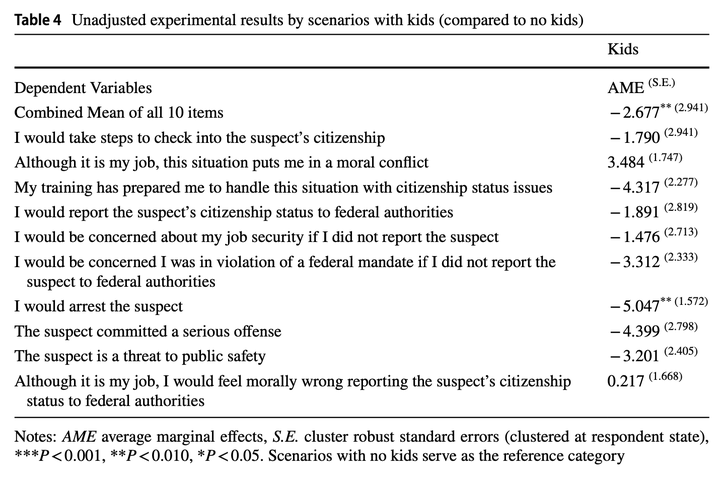Discretion in immigration enforcement
How non-federal officers navigate policy mandates and moral judgements

Abstract
Objectives- Recent federal mandates have intensified expectations for local law enforcement to engage in immigration enforcement. This study examines how frontline officers exercise discretion in such contexts, focusing on how situational cues, specifically crime severity and the presence of children, influence intended enforcement actions and moral conflict. Methods- A nationally distributed 3 × 2 factorial vignette experiment (n = 601) was conducted to assess officers’ intended enforcement responses across varying levels of crime severity and family context. Respondents evaluated hypothetical immigration enforcement scenarios, indicating both their intended actions and perceived moral hesitation. Results- Officers were significantly less likely to pursue immigration enforcement when scenarios involved children, particularly for low-severity offenses. In contrast, violent crime increased enforcement intentions and reduced moral hesitation. Interaction effects revealed that the moderating role of children was strongest under minor offenses. Conclusions- Findings demonstrate how situational cues and moral considerations shape discretionary immigration enforcement under federal mandates. These results underscore the importance of training and policy guidance that address ethical tension and contextual variation in officers’ decision-making across jurisdictions.